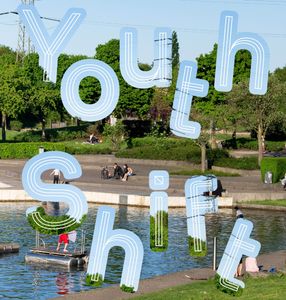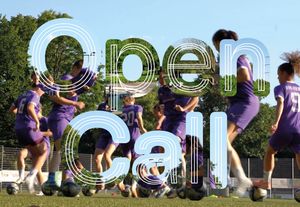On the 17th of September 2025, Portugal’s Minister of Culture, Youth and Sports, Margarida Balseiro Lopes; the Mayor of Coimbra, José Manuel Silva; the Vice-Rector of the University of Coimbra, Delfim Leão; the Director of the Círculo de Artes Plásticas de Coimbra (CAPC), Carlos Antunes; and the Director of Manifesta, Hedwig Fijen, officially came together in a press conference in the Cloisters of Colégio da Graça to collectively announce that the 17th edition of Manifesta will take place in Coimbra in 2028.
The Minister of Culture, Youth and Sports spoke of the arrival of Manifesta in Coimbra stating that, “investing in culture is also investing in the economy, in urban regeneration, in community mobilisation and in the capacity to project Portugal worldwide,” and “the true measure of Manifesta’s success will not lie only in the brilliance of the moment, but in the strength of the legacy we are able to build collectively.”
The press conference welcomed a vast array of political, cultural, social, academic actors from Coimbra, the Regional of Central Portugal and from the entire country, including Alberto Santos, the Secretary of State for Culture and Pedro Machado, the Secretary of State of Tourism.
The press conference took place in an iconic heritage site on the emblematic Rua da Sofia—a symbolic setting for the announcement. Rua da Sofia, a historic hub of education and culture, embodies the kind of heritage spaces that Manifesta 17 aims to engage with. The biennial announced that it proposes to work within a variety of these iconic sites along the Rua da Sofia, whilst rethinking their purpose in the everyday life of the community.
For the first time, Manifesta joins forces with a local biennial, combining three decades of international experience with a decade of deep roots in Coimbra through the biennial, Anozero.
What was underlined was the partnership between the International Foundation Manifesta and Anozero which will be created for this edition. Reflecting a shared commitment to exchange, knowledge production, and sustainable cultural practices. The two biennials highlighted that they aim to amplify their social and cultural impact, and stressed how collaboration and generosity in the arts are more vital than ever at a time of limited resources, strained artistic production, and urgent calls for sustainability.
The afternoon was a festive one with a programme of performances by local musicians including Estaca Zero, Constança Ochoa and Toni Ferrino.
![]()
![]()
![]()
![]()
![]()
![]()










